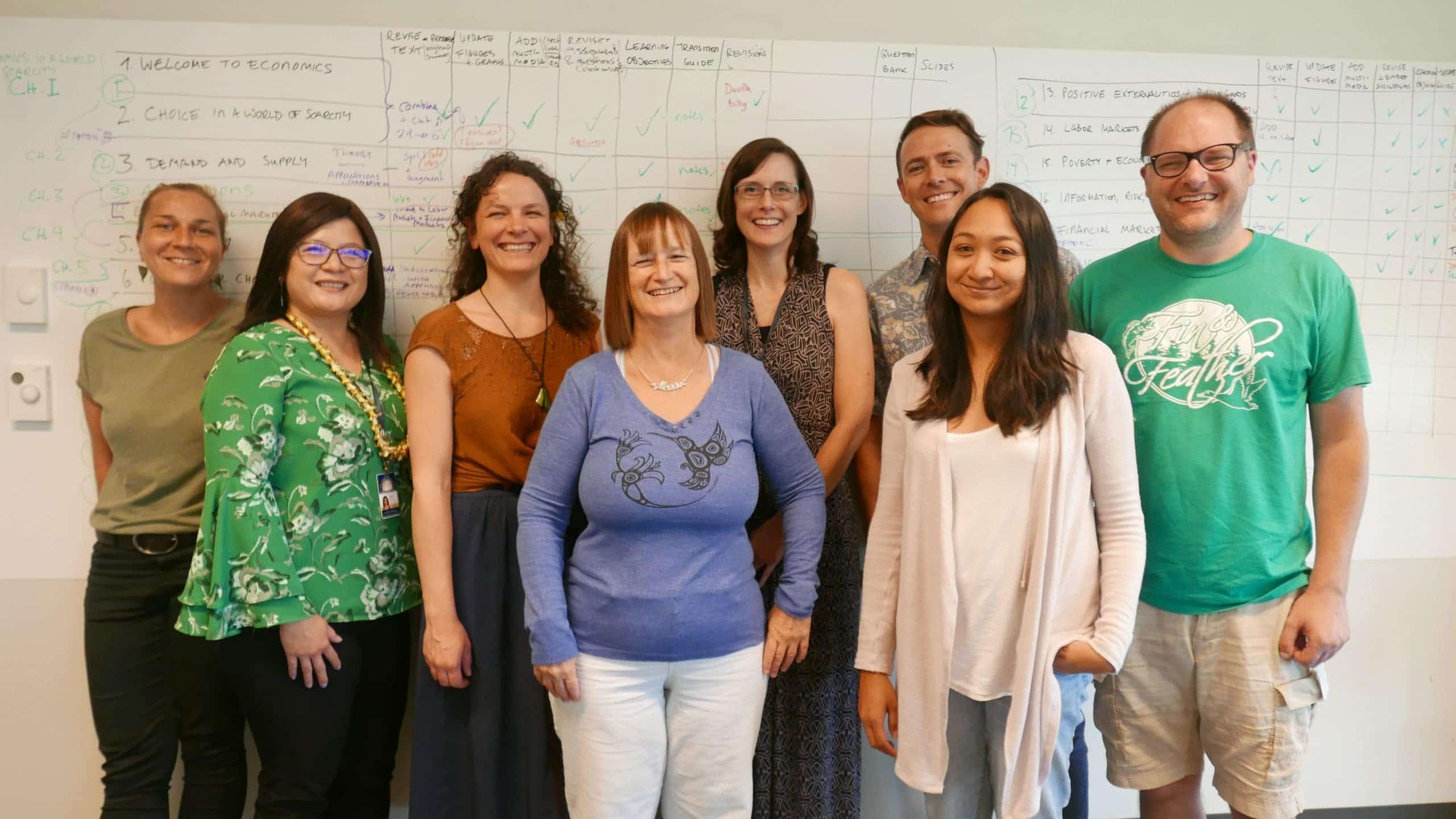OER Sprint Project with the University of Hawai’i Manoa
Since the launch of the Sprint Lab in 2019, we have experimented to apply the Book Sprints method to different formats, specifically for educational materials: Both writing new textbooks, and updating, improving and expanding existing open educational resources.
College textbooks have specific requirements to design the learners’ journey towards the learning goals, to support educators in both onsite and remote teaching, and to enable them to measure the learners’ performance. To produce a textbook collaboratively with experienced faculty and learning designers, the Book Sprints method is a promising process. Already in 2014, BCcampus sprinted the OER textbook BC in Global Context with us. With new OER projects in 2019, we wanted to take it further and understand how remixing existing OER material, writing new content where necessary, and updating existing textbooks, could be done in a Sprint.
The Book Sprints team profited from the skills of instructional designer Karina Piersig, who had joined our team in 2018. And the University of Hawai’i under Billy Meinke proved to be resourceful collaborators in this experiment.
After a months of conversations to map out how the process could be adjusted, two of our facilitators, Barbara and Karina, flew from Berlin to Hawai’i to facilitate two textbooks in a row: Microeconomics and English Composition. What followed were exciting days with faculty and instructional designers of the University of Hawai’i campus in Honolulu.

Authors and facilitators of the UH Microeconomics textbook
The organizer Billy Meinke, affirmed:
While it can be a slow process to make substantive changes to a textbook over a semester, the sprint offered the chance to make changes immediately and receive expert feedback from others who work with the same content, resulting in a book that better supports the needs of the instructors.
It was an experimental approach to curriculum development, and the participants worked very hard to give their all to the project. A Book Sprint is always an intense experience, no matter what kind of text is being produced. In this case, each of the two Sprints took only 3 days. The authors worked overtime to compile and adapt existing content, draft entirely new chapters, revise and edit each others’ work.
Both books are now available on the UH Pressbooks site, to be viewed, used and downloaded under the terms of the CC BY license attached to it. We are happy with the result of this double trial experience, and are looking forward to work the with University of Hawai’i on their next OER Textbook Sprints this year!
Check out more photos from the process here on flickr.
